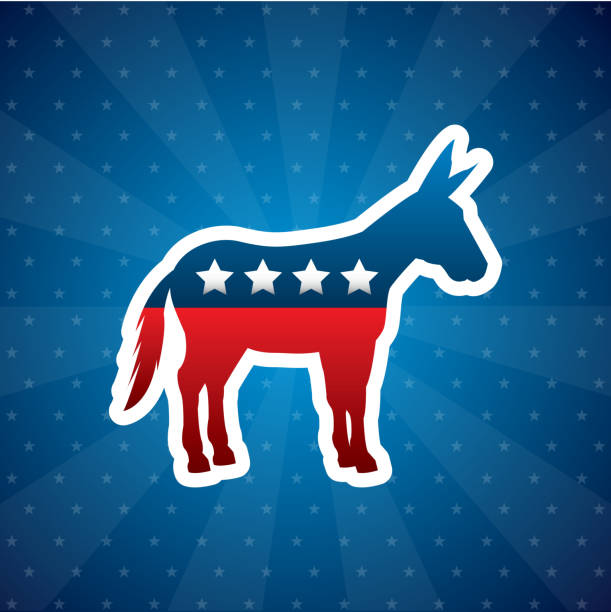The governing body of the Maryland Democratic Party is the Democratic State Central Committee. Committee members are elected from their respective county or legislative district or are honorary (nonvoting) members designated by the Committee. Honorary members may include elected Democratic officials such as the Governor, Lieutenant Governor, Attorney General, Comptroller of the Treasury, U.S. Senator, or U.S. Representative. Honorary memberships also may be extended to former Democratic governors and representatives of the Young Democrats of Maryland, the United Democratic Women’s Clubs of Maryland, Maryland members of the Democratic National Committee, and any others designated by the State Central Committee.
 In each gubernatorial primary election, Democratic central committees are elected locally by voters in each county and Baltimore City. Members serve four-year terms. A member of a local Democratic central committee must be a registered Democratic voter and a bona fide resident of the county or legislative district represented. Any qualified person may run for the office by filing a candidacy with the local board of elections.
In each gubernatorial primary election, Democratic central committees are elected locally by voters in each county and Baltimore City. Members serve four-year terms. A member of a local Democratic central committee must be a registered Democratic voter and a bona fide resident of the county or legislative district represented. Any qualified person may run for the office by filing a candidacy with the local board of elections.
RESPONSIBILITIES
STATE CENTRAL COMMITTEES
Each political party in Maryland functions under its own constitution and bylaws and is governed by a state central committee (Code Election Law Article, secs. 4-201 through 4-205). Today, the state central committee is composed of the members of the party’s local central committees for the counties and Baltimore City.
REGULATE VOTING PROCEDURES & THE BALLOT
State central committees evolved at the end of the nineteenth century as progressive reforms transformed the electoral process, and the procedure for voting came to be more closely regulated. When primary elections developed at the end of the nineteenth century, state central committees were formed to oversee their conduct.* In 1886, legal provisions for primaries in Baltimore City were enacted. They were
” . . . to be held by any voluntary political association or party in the city of Baltimore for delegates to any managing convention, otherwise called City Convention, or to any nominating convention, or for the nomination of candidates for any state or municipal office . . . ” (Chapter 502, Acts of 1886)
Two years later, the General Assembly provided for primaries in Allegany County.
” . . . every political primary election held by any political party, organization or association, in Allegany County, for the purpose of choosing candidates for office, or the election of delegates to county conventions, shall be presided over and conducted by judges of election selected in the manner prescribed by the rules or regulations of the political party, organization or association holding such primary . . . ” (Chapter 181, Acts of 1888)
By 1892, the responsibilities of a local state central committee were noted in a law defining procedures for Queen Anne’s County primary elections.
“It shall be the duty of the Democratic State Central Committee to have the ballots prepared and to issue instructions as to the manner of marking and using the same. And it shall be the duty of the Democratic District Executive Committee to have posted the sample ballot at the polling place in their respective districts, at the opening of the polls.” (Chapter 508, Acts of 1892)
What later became public charges were intermingled with political party expenses.
” . . . the Democratic State Central Committee is authorized and empowered to assess and collect of the various candidates represented by the delegations to go on the ticket a sum sufficient to pay for preparation of ballots, room rent, and a fair per diem to judges and clerks . . .” (Chapter 508, Acts of 1892)
That same year, legislation outlining the primary process for Baltimore County referred to the state central committee as well.
” . . . polls shall be open for such time as may be prescribed by the State central committee or the county executive committee ordering said primary election, precinct meeting or another meeting.” (Chapter 261, Acts of 1892).
REPLACE GENERAL ASSEMBLY MEMBERS
In recent times, an essential function of state central committees has been to name those who will replace General Assembly members who have died, resigned, refused to act, or been disqualified, expelled, or removed from office (Chapter 584, Acts of 1935, ratified Nov. 3, 1936). Although the Governor makes the appointment to fill a vacancy in the General Assembly, the Governor must select the person nominated by the state central committee of the party with which the vacating legislator had been affiliated (Const., Art III, sec. 13).
As of February 2022, the following offices were held:
STATE CENTRAL COMMITTEE
EXECUTIVE COMMITTEE
Chosen by State Central Committee in Dec., 4-year terms:
Yvette Lewis, Chair
Cory V. McCray, 1st Vice-Chair
Judy Wixted, 2nd Vice-Chair
Nicole A. Williams, 3rd Vice-Chair
Robbie Leonard, Secretary
Abena Affum-McAllister, Deputy Secretary
Robert J. Kresslein, Treasurer
Barbara Goldberg Goldman, Deputy Treasurer
L. Gregory Pecoraro, Parliamentarian
Terms expire 2022.
National Committee members: Cheryl Summers Landis; Bel Leong-Hong. Terms expire 2024.
Chairs of local central committees & additional local members
Vacancy, Young Democrats of Maryland
Prudence L. Johnson, United Democratic Women of Maryland
Bruce L. Marcus, Esq., General Counsel
Eva R. Lewis, Executive Director
275 West St., Suite 305, Annapolis, MD 21401
(410) 269-8818, (301) 58-8818; fax: (410) 280-8882
e-mail: info@mddems.org
web: www.mddems.org


